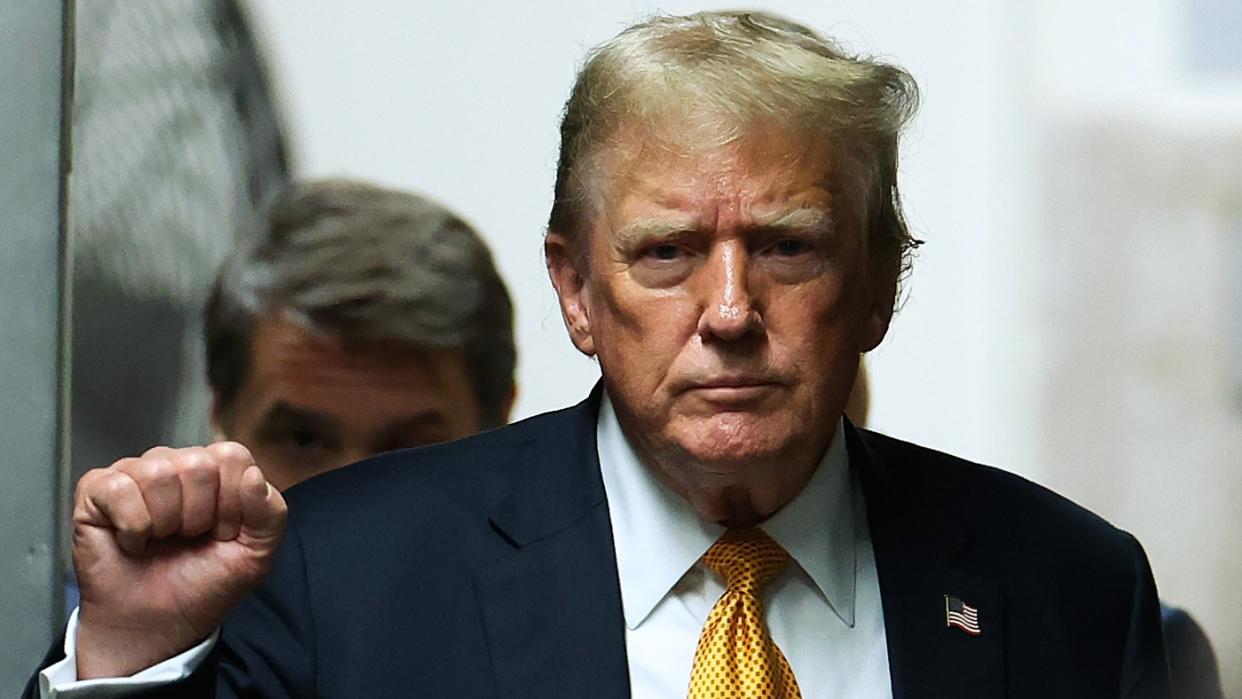Trump's conviction: an electoral rallying call?

As the final guilty verdict was read in Donald Trump's hush-money trial yesterday, attention immediately turned to the impact it would have on the US presidential election on 5 November.
The unanimous 34 guilty verdicts delivered in the Manhattan court cement Trump's place in the history books as the first former president of the United States to be a convicted felon.
The "immediate impact is undeniable", said Axios's Zachary Basu and Sophia Cai. "America's political fabric has been fundamentally altered." But a rush of Republican donor support and little change in the polls suggest the result may have a less seismic impact on the outcome of the next presidential election.
A damaged candidacy
The verdict hands President Joe Biden and his Democratic allies "a weapon that they badly needed", said The Hill's Niall Stanage. Biden, who has been flagging in battleground state polls, "can now argue the American people must not vote for a criminal as president".
"I do think it will have an impact and damage him as a candidate," Ariel Hill-Davis, co-founder of Republican Women for Progress, a group that has sought to move the party away from Trump, told the BBC. College-educated and younger voters are "really hesitant to get back in line with the Republican Party headed by Donald Trump". This verdict will "further shore up those concerns".
The question now "isn't just how voters react", David Axelrod, an architect of the Obama presidency campaigns, told The New York Times – it's about "how Trump himself reacts".
If the former president decides to "retreat further into rage and self-pity, obsessing over his own grievances rather than addressing the concerns of voters, it may make the difference for people on the bubble".
And while the verdict may feel "momentous", said The Washington Post, Trump still faces a long list of legal challenges that could prove to be more important.
Perhaps the biggest effect will be on the quality and tenor of the debate in the coming months. "We've entered new political & legal territory as a Nation," said US historian Tim Naftali on X.
"Donald Trump will now force every GOP candidate to trash our judicial system. There will be a chorus of poison likely worse than what we heard before Jan. 6th."
'Long forgotten' by November
Trump's conviction during an election campaign "is truly remarkable", said ABC News's Averi Harper. What's "even more remarkable" is that it probably won't significantly dent the broad support he receives from the Republican party or their voters.
Major Republican donors rapidly rallied behind Trump yesterday, said Reuters, "pledging millions of dollars" to support his campaign. A number of those who spoke to the news agency were "broadly upbeat" about his chances in November.
Their optimism is reflected in recent polling. Two-thirds (67%) of Americans said they wouldn't change their vote in light of Trump's criminal conviction, an NPR/"PBS NewsHour"/Marist poll released yesterday suggested. The results chime with surveys assessed by FiveThirtyEight's senior elections analyst Nathaniel Rakich, which show Trump drops six points of support when a conviction was taken into account – "but Biden gains only one point".
It's likely that the "conviction will make some Trump supporters squeamish about the idea of pulling the lever for him", said Rakich, "so they will stop identifying as Trump supporters for a while". But "most of them won't go so far as to vote for Biden".
This verdict "may ding Trump's poll numbers slightly in the short run", said CNN's Patrick Brown, "but by November it will almost certainly be long forgotten". Or perhaps, come election day, it will be remembered by Republicans only as "more proof that the 'elites' were willing to bend every rule in the book to go after Trump, and he refused to back down".
If this trial ends up determining the presidential race, agreed Rakich, it will be "because the campaign was a game of inches anyway".


